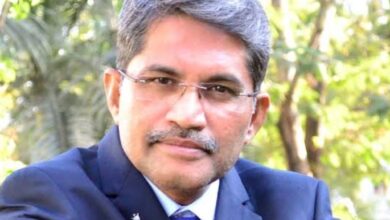Halima Shehu Biography: Education, Career, Family, Achievements

Halima Shehu Biography
Meet Halima Shehu whose real name, Halima Sa’adiya Shehu is a Nigerian public servant and administrator who became known for her strong role in social welfare and financial inclusion programmes in Nigeria. She worked in both the private and public sectors, rising to important positions through dedication, education, and experience. Over the years, she played a key role in improving social investment programmes that supported millions of poor Nigerians. Although her career faced challenges due to controversies, she remains a well-recognized figure in governance and development work in Nigeria.
Early Life and Background
Halima Shehu was born in Kafin Dagi village in Katsina State, Nigeria. Katsina is a state in northern Nigeria with a rich history and culture. Growing up in a traditional northern Nigerian family, Halima experienced both the challenges and opportunities of life in a rural community. These early experiences shaped her strong will, discipline, and determination to succeed in life.
Her childhood was filled with lessons about honesty, resilience, and service to the community. These values would later guide her professional life. Even though details about her parents and siblings are not made public, it is clear that her family played an important role in giving her a good foundation for education and character building.
Read Also: Dr. Edward Omane Boamah: Biography, Education, Career, Wife, Age 2025
Education
Education was a strong foundation for Halima Shehu’s success. She started her schooling at Ambuttai Primary School in Katsina State, which is today known as Musa Yar’adua Primary School. From a young age, she showed interest in learning and was hardworking.
After her primary school, she moved to Federal Government College, Kaduna, one of Nigeria’s respected unity schools. There, she obtained her West African Secondary School Certificate (WASSCE).
Halima later gained admission into Ahmadu Bello University (ABU), Zaria, one of the most respected universities in Nigeria. At ABU, she studied English and obtained a Bachelor of Arts (B.A.) degree. She did not stop there. She further pursued a Master’s Degree in International Affairs and Diplomacy at the same university.
Her background in English gave her strong communication skills, while her postgraduate studies in International Affairs and Diplomacy prepared her for leadership and service in government and development organisations.
Career
Like every Nigerian graduate, Halima served in the National Youth Service Corps (NYSC). She was posted to the Afri-Project Consortium, which worked with the Petroleum Trust Fund (PTF). The NYSC year exposed her to national service and gave her her first taste of development projects in Nigeria.
After her NYSC, Halima entered the banking sector. She worked for about ten years in three major banks which includes:
-
InterCity Bank (ICB PLC) which she worked in the Audit and Internal Control Unit. This role gave her strong knowledge of financial accountability and transparency.
-
Unity Bank PLC which she rose to become Head of Customer Service, Cash, Clearing, and Funds Transfer. This gave her leadership skills and experience in customer management.
-
Access Bank Plc in which she worked as Branch Services Head (also known as Branch Operations Manager). Here, she managed staff, finances, and daily operations.
Her banking career prepared her for bigger leadership positions in government, as she developed skills in finance, management, and accountability.
In 2011, Halima moved from banking into government service. She was appointed Senior Special Assistant to the Governor of Katsina State, where she served until 2015. During this time, she also became a member of the Katsina State Board of Internal Revenue, contributing to the state’s financial reforms and revenue generation.
In 2016, Halima Shehu served as an ECOWAS election observer during the presidential elections in Cape Verde. This showed her growing recognition as an expert in governance and international diplomacy.
Her most remarkable achievement came when she became the National Programme Coordinator of the National Cash Transfer Office (NCTO). This office was a key part of the National Social Investment Programme (NSIP) under the Federal Ministry of Humanitarian Affairs, Disaster Management, and Social Development.
At NCTO, Halima led reforms that changed the way cash transfers were managed. Before her leadership, most payments were done manually with cash, which caused corruption and inefficiency. She introduced digital systems that allowed beneficiaries to open bank accounts, use debit cards, and receive money directly. Under her watch:
-
Over 2 million beneficiaries had their bank accounts opened.
-
Debit cards were distributed to many poor households.
-
Beneficiaries received financial literacy training in their local languages.
Her work at NCTO was widely praised, as it made the system more transparent and reduced the chances of corruption.
In September 2023, Halima was appointed as the National Coordinator and Chief Executive Officer of the National Social Investment Programme Agency (NSIPA). She was later confirmed by the Senate in October 2023. This was one of the biggest responsibilities of her career, as NSIPA oversees major social programmes such as N-Power, TraderMoni, and the National Cash Transfer Programme.
In January 2024, just months after her appointment, Halima Shehu faced serious controversy. She was accused of mismanaging ₦44.8 billion from NSIPA accounts. Reports claimed that between December 27 and 31, 2023, large amounts of money were transferred out of NSIPA accounts. The Economic and Financial Crimes Commission (EFCC) began investigations and reportedly recovered about ₦39.8 billion.
Following these allegations, President Bola Ahmed Tinubu suspended her from office. The case attracted wide media attention and sparked debates about corruption in Nigeria’s social programmes. As of now, investigations are still ongoing, and her future in public service remains uncertain.
Achievements
-
Worked in major Nigerian banks and held senior leadership positions.
-
Served Katsina State as Senior Special Assistant and contributed to revenue reforms.
-
Represented Nigeria as an ECOWAS election observer.
-
Digitised cash transfers, improved transparency, and empowered millions of poor Nigerians as NCTO Coordinator.
-
Became one of the most powerful women in Nigeria’s social investment sector.
Marriage, Parents, and Siblings
Information about Halima Shehu’s marriage, spouse, children, parents, and siblings is not publicly available. She has kept her private life away from the media, focusing more on her professional journey. This privacy is common among many Nigerian public figures, especially women in politics and administration.
Net Worth
There are no official records of Halima Shehu’s net worth. However, given her career in banking, government, and as a national programme coordinator, it is safe to say she is financially comfortable. Any figures online about her wealth remain unverified.
Conclusion
Halima Shehu’s life is a story of determination, education, and service. From a small village in Katsina, she rose to become a banker, a state official, an international observer, and later the national coordinator of Nigeria’s largest social investment programmes. She worked hard to introduce reforms that helped millions of Nigerians, especially the poor and vulnerable.
However, her career also faced challenges, as allegations of fund mismanagement brought her under investigation and suspension from office. Whether she clears her name or not, Halima Shehu remains an important figure in Nigeria’s social development history.
Her story teaches that leadership comes with both opportunities and challenges, and that integrity remains the key to lasting legacy.



